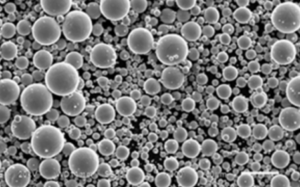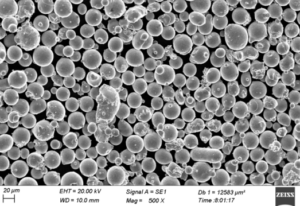When you think about protecting, enhancing, or even changing the surface properties of an object, what comes to mind? Surface coating materials, of course! These coatings play a crucial role in a myriad of industries, offering everything from corrosion resistance to aesthetic appeal. In this detailed guide, we’ll unravel the complexities of surface coating materials, breaking down their types, compositions, properties, applications, and much more. So, let’s get started!
Overview of Surface Coating Materials
Surface coating materials are substances applied to the surface of an object, known as the substrate, to enhance its properties. These enhancements can include improved appearance, corrosion resistance, wear resistance, and more. The materials used for surface coatings can range from simple paints to complex polymer-based coatings and advanced metal powders.
Surface coatings are pivotal in industries such as automotive, aerospace, construction, and electronics. They not only protect surfaces but can also reduce friction, enhance conductivity, and provide insulation. Essentially, they are the unsung heroes ensuring longevity and functionality of various products.
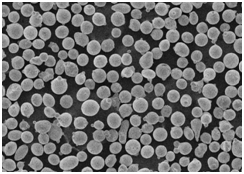
Types of Surface Coating Materials
To better understand surface coating materials, let’s break them down into their key types:
| Type | Composition | Properties | Applications |
|---|---|---|---|
| Paints | Pigments, binders, solvents | Aesthetic appeal, protection | Automotive, construction, household items |
| Varnishes | Resins, solvents | Glossy finish, protection | Wood products, furniture |
| Powder Coatings | Thermoplastic or thermoset polymers | Durability, environmental-friendly | Appliances, automotive parts |
| Metal Powders | Metals like aluminum, zinc, copper | High strength, conductivity | Electronics, aerospace, industrial machinery |
| Polymer Coatings | Polymers like PTFE, PEEK | Chemical resistance, low friction | Medical devices, mechanical parts |
| Ceramic Coatings | Silica, alumina, zirconia | Heat resistance, hardness | Turbines, engine components |
| Plating | Metals like gold, silver, chromium | Corrosion resistance, aesthetic | Jewelry, electronics, automotive |
Specific Metal Powder Models
Metal powders are a critical segment of surface coating materials, offering unique properties that make them indispensable in various high-tech applications. Here are some specific metal powder models:
- Aluminum Powder (Al-1000 Series)
- Description: High purity aluminum powder known for its excellent conductivity and corrosion resistance.
- Applications: Used in electronics, aerospace components, and as a pigment in coatings.
- Zinc Powder (Zn-9000 Series)
- Description: Zinc powder with high corrosion resistance, often used in galvanization processes.
- Applications: Automotive parts, construction materials, and anti-corrosion coatings.
- Copper Powder (Cu-7000 Series)
- Description: High conductivity copper powder used extensively in electrical and thermal applications.
- Applications: Printed circuit boards, electronic components, heat sinks.
- Titanium Powder (Ti-6000 Series)
- Description: Titanium powder known for its high strength-to-weight ratio and biocompatibility.
- Applications: Aerospace parts, medical implants, and sports equipment.
- Iron Powder (Fe-5000 Series)
- Description: Versatile iron powder used in various industrial applications due to its magnetic properties.
- Applications: Magnetic materials, automotive parts, and structural components.
- Nickel Powder (Ni-4000 Series)
- Description: Nickel powder with high resistance to oxidation and corrosion, used in high-temperature applications.
- Applications: Turbine blades, battery electrodes, and chemical processing equipment.
- Chromium Powder (Cr-3000 Series)
- Description: Chromium powder known for its hardness and corrosion resistance.
- Applications: Hard coatings, cutting tools, and wear-resistant surfaces.
- Silver Powder (Ag-2000 Series)
- Description: High conductivity and anti-microbial properties make silver powder ideal for electronic and medical applications.
- Applications: Conductive inks, medical devices, and electronics.
- Gold Powder (Au-1000 Series)
- Description: Gold powder known for its excellent conductivity and corrosion resistance, often used in high-end electronics.
- Applications: Electronic connectors, luxury items, and medical devices.
- Tungsten Powder (W-8000 Series)
- Description: Tungsten powder with high density and melting point, used in high-temperature applications.
- Applications: Aerospace components, electrical contacts, and radiation shielding.
Composition of Surface Coating Materials
Understanding the composition of surface coating materials helps in selecting the right type for a specific application. Here’s a detailed look:
| Material | Composition | Key Elements |
|---|---|---|
| Paints | Pigments, Binders, Solvents | Titanium dioxide, Acrylic resin, Water/solvent |
| Varnishes | Resins, Solvents | Alkyd resin, Polyurethane, Mineral spirits |
| Powder Coatings | Polymers (thermoplastic/thermoset) | Polyester, Epoxy, Polyurethane |
| Metal Powders | Pure metals, Alloys | Aluminum, Zinc, Copper, Titanium |
| Polymer Coatings | Polymers | PTFE, PEEK, Polyethylene |
| Ceramic Coatings | Ceramics | Silica, Alumina, Zirconia |
| Plating | Metals | Gold, Silver, Chromium, Nickel |

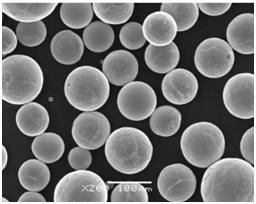
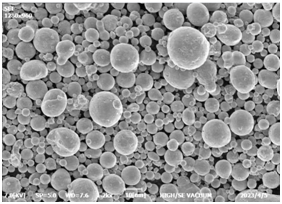
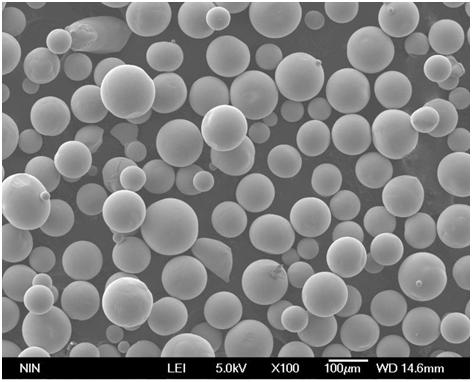
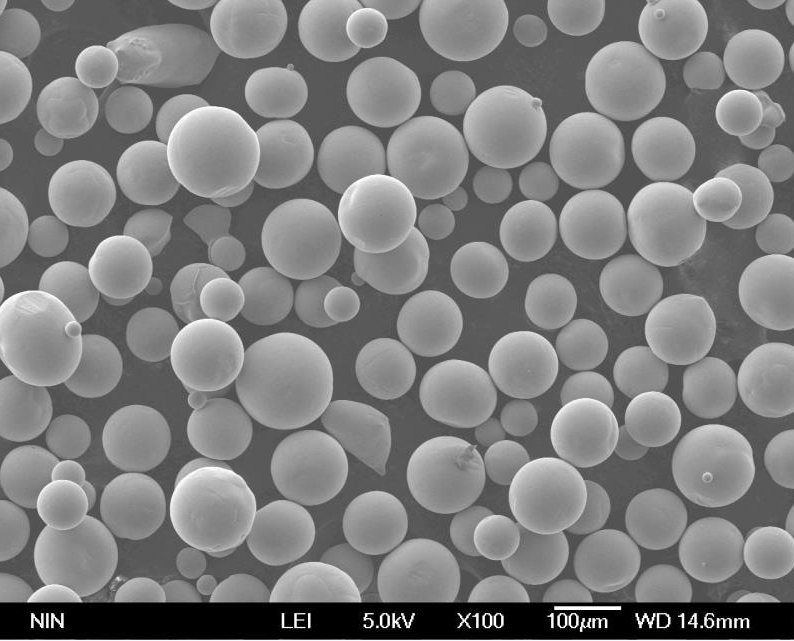
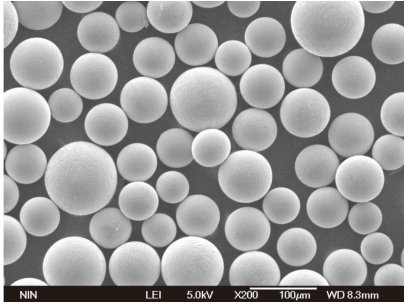
Characteristics of Surface Coating Materials
Different surface coating materials exhibit unique characteristics based on their composition and intended use. Here’s a breakdown:
| Characteristic | Paints | Varnishes | Powder Coatings | Metal Powders | Polymer Coatings | Ceramic Coatings | Plating |
|---|---|---|---|---|---|---|---|
| Durability | Moderate | High | Very High | High | High | Very High | High |
| Aesthetic Appeal | High | High | High | Moderate | Moderate | Low | High |
| Corrosion Resistance | Moderate | Moderate | High | High | High | Very High | High |
| Heat Resistance | Low | Low | Moderate | High | High | Very High | Moderate |
| Chemical Resistance | Moderate | Moderate | High | Moderate | Very High | High | High |
| Environmental Impact | Moderate | Moderate | Low | Moderate | Moderate | Low | Moderate |
Applications of Surface Coating Materials
Surface coating materials find applications in various fields, thanks to their diverse properties. Let’s explore some common applications:
| Application | Materials Used | Reason |
|---|---|---|
| Automotive | Paints, Powder Coatings, Metal Powders | Aesthetic, corrosion resistance, durability |
| Aerospace | Metal Powders, Ceramic Coatings, Plating | High strength, heat resistance, wear resistance |
| Electronics | Metal Powders, Polymer Coatings, Plating | Conductivity, protection, reliability |
| Construction | Paints, Powder Coatings, Varnishes | Protection, aesthetics, durability |
| Medical Devices | Polymer Coatings, Metal Powders, Plating | Biocompatibility, corrosion resistance, sterilizability |
| Industrial Machinery | Metal Powders, Ceramic Coatings, Polymer Coatings | Wear resistance, durability, heat resistance |
Specifications, Sizes, Grades, Standards
When selecting surface coating materials, it’s crucial to consider the specifications, sizes, grades, and standards to ensure they meet the application’s requirements. Here’s a snapshot:
| Material | Specifications | Sizes | Grades | Standards |
|---|---|---|---|---|
| Paints | ASTM D523 | Various | Industrial, Decorative | ISO 9001 |
| Varnishes | ASTM D1640 | Various | Gloss, Semi-gloss | EN 927 |
| Powder Coatings | ASTM D3451 | Micron-sized particles | High, Low cure | AAMA 2605 |
| Metal Powders | ASTM B212 | Micron to millimeter sizes | High purity, Alloyed | ISO 3252 |
| Polymer Coatings | ASTM D6577 | Various | High, Low molecular weight | FDA approved |
| Ceramic Coatings | ASTM C633 | Various | High temperature, Low temperature | SAE AMS |
| Plating | ASTM B689 | Micron thickness | Decorative, Functional | ISO 4527 |
Suppliers and Pricing Details
Knowing where to source surface coating materials and their pricing is essential for planning and budgeting. Here are some prominent suppliers and pricing details:
| Material | Supplier | Price (per kg) | Contact |
|---|---|---|---|
| Aluminum Powder | Sigma-Aldrich | $50 | www.sigmaaldrich.com |
| Zinc Powder | American Elements | $30 | www.americanelements.com |
| Copper Powder | Inframat Corporation | $70 | www.inframat.com |
| Titanium Powder | AP&C | $200 | www.advancedpowders.com |
| Nickel Powder | Vale | $100 | www.vale.com |
| Iron Powder | Höganäs AB | $25 | www.hoganas.com |
| Chromium Powder | Hunter Chemical | $120 | www.hunterchem.com |
| Silver Powder | Ames Goldsmith | $900 | www.amesgoldsmith.com |
| Gold Powder | Materion | $60,000 | www.materion.com |
| Tungsten Powder | Global Tungsten & Powders | $80 | www.globaltungsten.com |
Comparing Pros and Cons
Making an informed decision often involves weighing the pros and cons of various options. Let’s compare some key surface coating materials:
| Material | Advantages | Disadvantages |
|---|---|---|
| Paints | Cost-effective, Aesthetic appeal | Limited durability, Environmental impact |
| Varnishes | Enhances wood, Durable | Can be toxic, Requires multiple coats |
| Powder Coatings | Environmentally friendly, Durable | Requires curing, Limited to metals |
| Metal Powders | High strength, Versatile | Expensive, Requires specialized equipment |
| Polymer Coatings | Chemical resistance, Low friction | Costly, Complex application process |
| Ceramic Coatings | Heat resistance, Hardness | Brittle, Expensive |
| Plating | Corrosion resistance, Aesthetic | Can be costly, Environmental concerns |
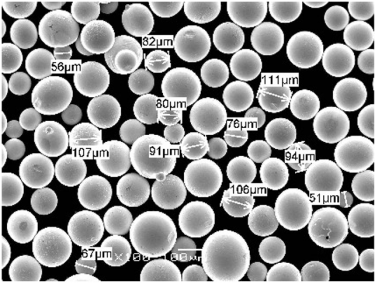
FAQ
What are surface coating materials?
Surface coating materials are substances applied to surfaces to enhance their properties such as appearance, durability, corrosion resistance, and more.
Why are metal powders used in coatings?
Metal powders are used in coatings due to their high strength, conductivity, and ability to provide a durable, corrosion-resistant surface.
How do powder coatings differ from traditional paints?
Powder coatings are applied as a dry powder and require curing, whereas traditional paints are liquid-based and dry through evaporation of solvents.
What industries benefit most from surface coating materials?
Industries like automotive, aerospace, construction, electronics, and medical devices benefit significantly from surface coating materials due to the enhanced properties they provide.
Can surface coatings be environmentally friendly?
Yes, certain surface coatings like powder coatings are more environmentally friendly as they emit fewer volatile organic compounds (VOCs) compared to traditional paints.
What factors should be considered when selecting a surface coating material?
Factors to consider include the application’s requirements, the material’s properties, environmental impact, cost, and the intended use’s specific demands.
Are there any safety concerns with using surface coating materials?
Yes, some surface coating materials can be toxic or require careful handling and application processes to ensure safety and compliance with environmental regulations.
How are surface coating materials applied?
They can be applied using various methods such as spraying, dipping, brushing, electroplating, and thermal spraying, depending on the material and the application.
What advancements are being made in surface coating technologies?
Advancements include the development of nano-coatings, self-healing coatings, and environmentally friendly alternatives that offer enhanced performance and reduced environmental impact.
Where can I purchase high-quality surface coating materials?
High-quality surface coating materials can be sourced from specialized suppliers such as Sigma-Aldrich, American Elements, and Materion, among others.
